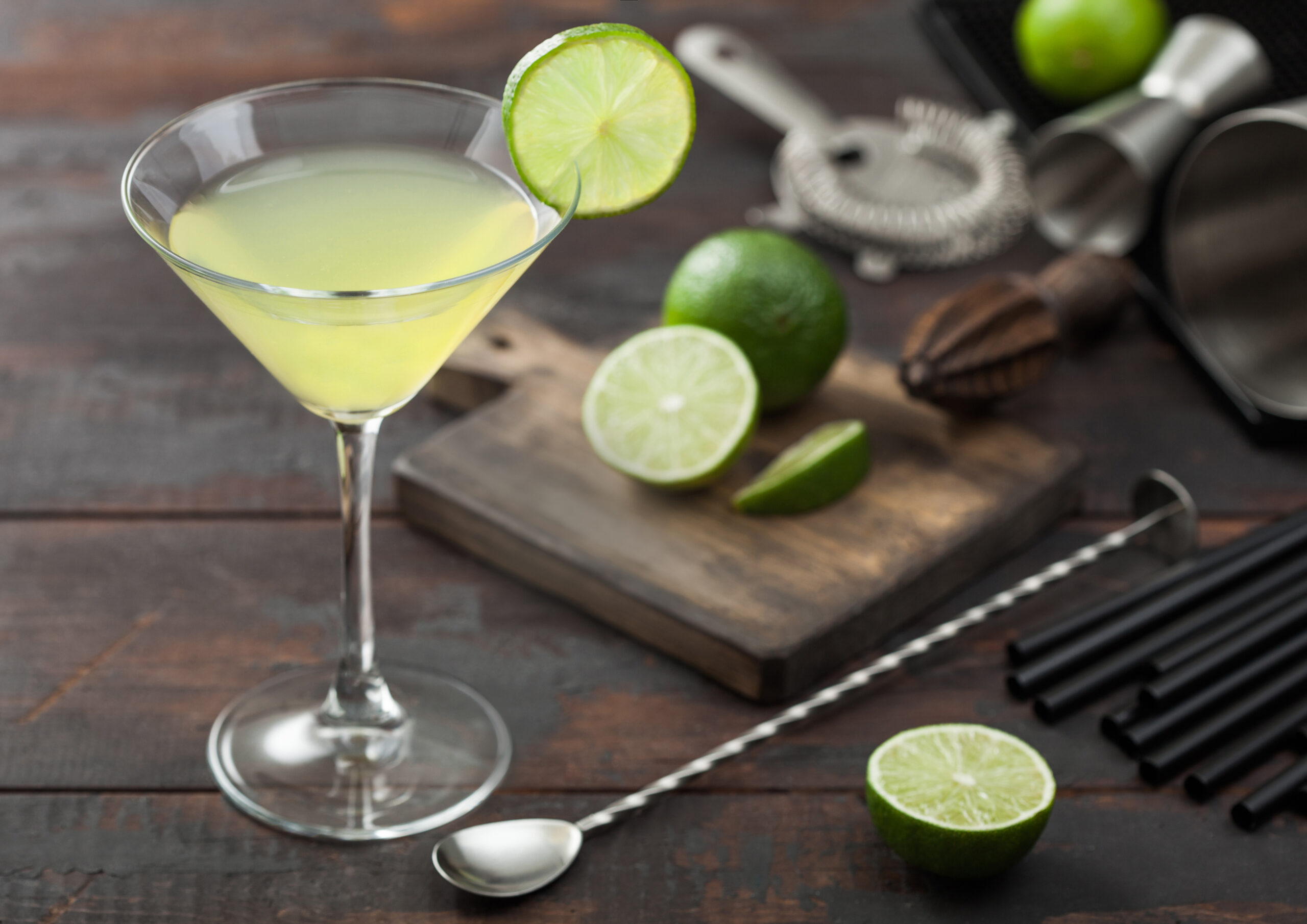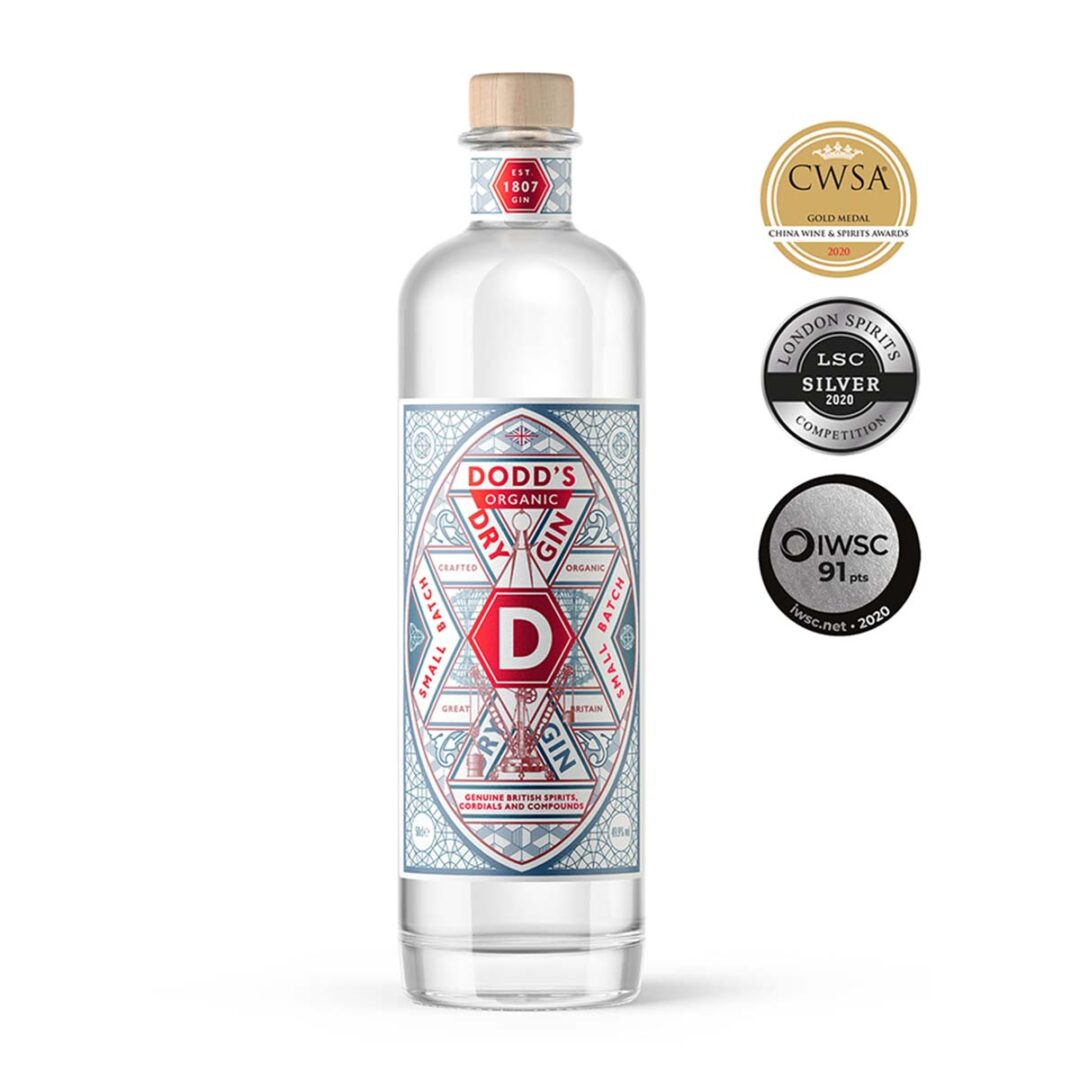Dodd’s Gimlet (April 2021 – Issue 1)
Posted on April 1, 2021 by Phil Henwood

It’s a simple three-ingredient recipe that should be in every cocktail lover’s back pocket. So, grab your favourite bottle of gin, and let’s make a gimlet!
Ingredients:
– 50ml Dodd’s Organic London Dry Gin
– 25ml Lime Juice
– 25ml Gomme (Sugar) Syrup
– Lime to garnish
– Ice Cubes, as needed
Method:
1. Put all ingredients in a cocktail shaker and shake hard for 30 seconds.
2. Strain and serve in a coupe or martini glass.
3. Garnish with a lime wheel twist.
We suggest freshly-squeezed lime juice. As an alternative to Gomme or Sugar Syrup, a touch of honey can do the trick.

Dodd’s Organic Gin Tasting Notes
Fragrant with juniper, angelica and plenty of heat from the cardamom, the botanicals of this big flavourful gin are set off by fresh lemon and undercut by a little sweetness from sugar.
Award-winning Dodd’s Organic London Dry Gin is extraordinarily versatile and deserves a place in any bar (home bars included!). Superb simply with tonic or shaken into your favourite cocktail.
Gimlet’s Origin Story
Comprising of gin, fresh lime juice and sugar, this cocktail is classified as a type of gin sour.
It is believed that Gimlet was created and served to the sailors in the British Royal Navy as a means of fighting scurvy, a disease caused by a deficiency in Vitamin C.
The best way to get sailors to drink lime juice? Mix it with liquor, of course! It did not take long for everyone to notice that this preventative drink is also delicious.
So, while scurvy may be a thing of the past, the Gimlet is here to stay. By the mid-20th century, the Gimlet is a popular cocktail with naval officers and in British society.
Today, fresh lime juice is the preferred choice but for decades, the Gimlet was predominately made with Rose’s Lime Juice, a bottled mixture of lime juice and sugar that debuted in the 1860s.
If using this Rose’s in your drink, you can skip the simple syrup, because the cordial is already sweetened. Aim for 30 ml of Rose’s to achieve the desired balance.
The drink eventually made its way into cocktail books – including the classic 1930 tome “The Savoy Cocktail Book” by Harry Craddock – with varying recipes, ingredients and proportions.
Share this:
- Click to share on X (Opens in new window) X
- Click to share on Facebook (Opens in new window) Facebook
- Click to share on LinkedIn (Opens in new window) LinkedIn
- Click to share on Reddit (Opens in new window) Reddit
- Click to share on WhatsApp (Opens in new window) WhatsApp
- Click to share on Telegram (Opens in new window) Telegram
Category: Cellar & Bar, TGIF Tags: Cocktail Recipes, Cocktails, TGIF
Tags
Copyright © 2025 · All Rights Reserved · Limwood Lifestyle
